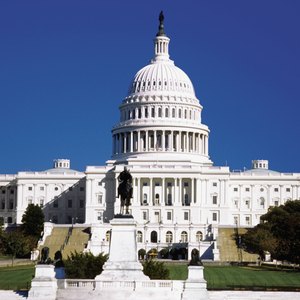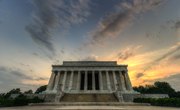
The framers of the Constitution wrote Article I Section 8 to enumerate and limit the powers of the United States Congress. However, the framers decided these limitations were not clear enough. To fix this, they included the 10th Amendment in the Bill of Rights, ratified in 1791. The 10th Amendment states that all powers not specifically designated by the Constitution is delegated to the states.
The Elastic Clause
The most important clause of Article I Section 8 is the last one, which has come to be known as the "elastic clause" or the "necessary and proper clause." The elastic clause expands Congress's power by granting it the right to make all laws "necessary and proper" to carry out all of their other enumerated powers. The precedent for interpreting the elastic clause as expanding rather than limiting the powers of Congress was set in the 1819 McColloch vs. Maryland Supreme Court decision. Chief Justice Marshall wrote, "Let it be within the scope of the Constitution, and all means which are appropriate, which are plainly adapted to that end, which are not prohibited, but consistent with the letter and spirit of the Constitution, are constitutional."
Collecting Taxes
Article I Section 8 gives Congress the power to levy and collect taxes. This clause also grants Congress the power to determine how funds collected from taxes should be spent. This is referred to as "power of the purse," and gives Congress great authority over the executive branch, as the president cannot fund initiatives without consent from Congress. However, it wasn't until the adoption of the 16th Amendment in 1913 that Congress was allowed to collect federal income taxes.
Regulating Commerce
In Article I Section 8 of the Constitution, Congress has the power to regulate commerce. The "commerce clause" is considerably wider in scope than many congressional powers. Under its provisions, Congress is allowed to regulate all goods that cross state or international lines. This clause is seen as a limit on state power, although, the clause does not specifically limit states from also participating in commercial regulation.
Other Congressional Powers
In addition to regulating commerce and levying taxes, Congress also has the power to establish the rules on naturalization, coin money, post offices, patents and copyrights. Congress also has the power to constitute courts lower than the Supreme Court, declare war, suppress insurrections and govern Washington D.C. These powers are delegated to Congress alone and cannot be modified by the states.
References
Writer Bio
Sara Henderson has been a professional writer and editor since 2008, specializing in food, travel and education. She is pursuing an M.A. in English literature at Middlebury College.

